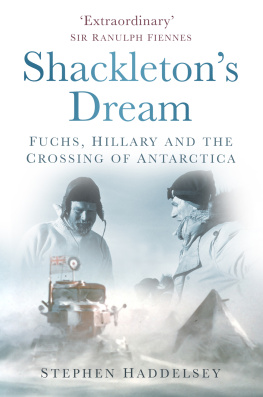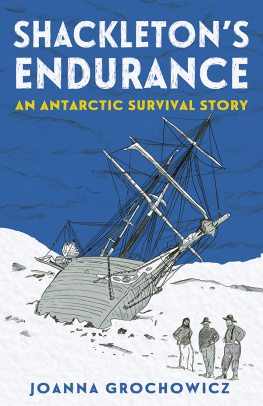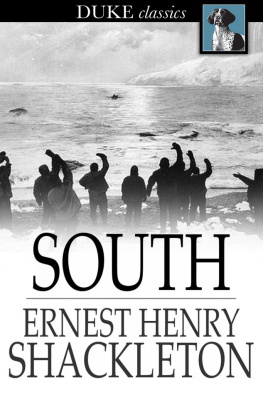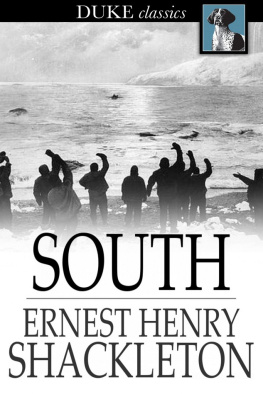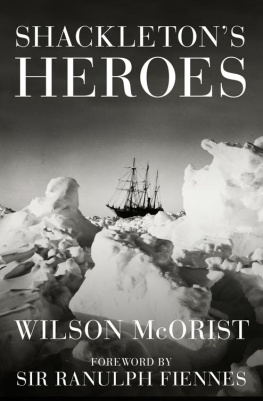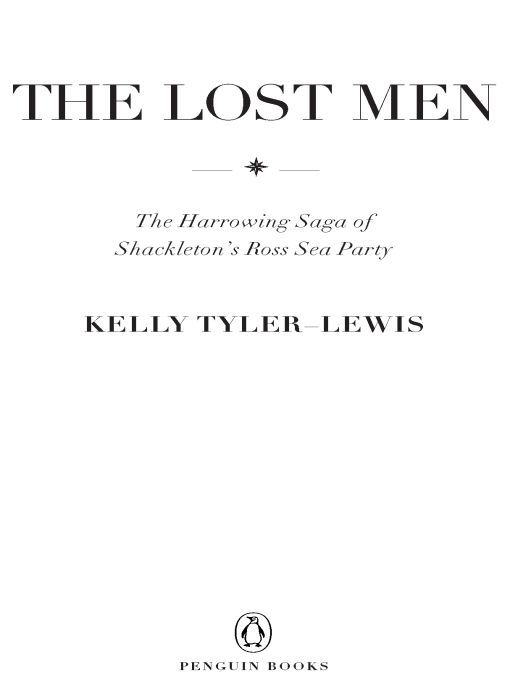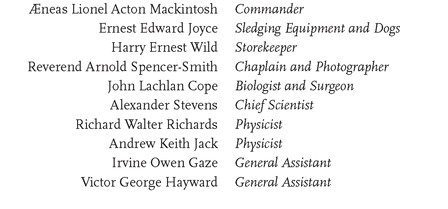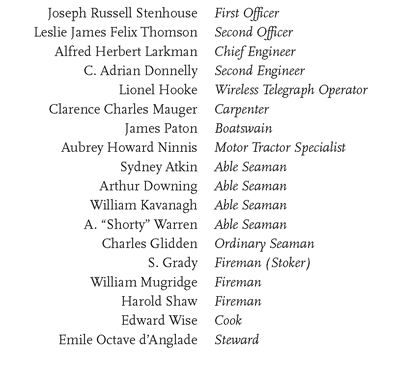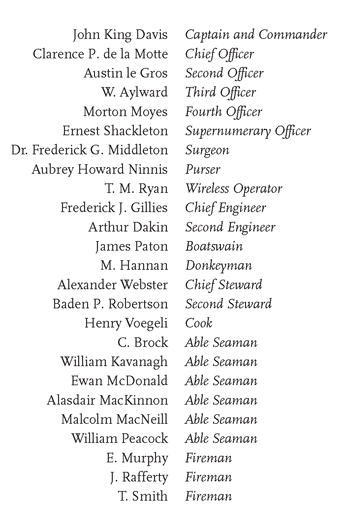Table of Contents
PRAISE FORThe Lost Men
Exhaustively researched and electrifyingly written. The Lost Men is a brutal and inspiring tale of adventure and enduranceand the furthest, coldest limits of dutythankfully chinked from the ice of history.
Mens Journal
Truly harrowing.The Boston Globe
Shackletons memoir sits next to dozens of breathless books and DVDs about the abortive mission, nearly all featuring legendary Australian photographer Frank Hurleys stark images of the teams twenty-two months floundering at sea. But there was a much more compelling story of a successful mission unfolding simultaneously on the other side of the continent, and its finally been told in gripping detail in The Lost Men. An inspiring, thorough and thoroughly enjoyable account. Lets hope that expedition now gets the recognition it deserves, even in the absence of a glorious photographic record.
Rocky Mountain News
Exhaustively researched and vividly written. Kelly Tyler-Lewis has righted the record and told a story that, in its own way, is just as astonishing as Shackletons.Seattle Weekly
Cambridge historian Tyler-Lewiss account of the ten-man partys plight relies heavily on the mens journals, which are amazingly detailed considering the physical (snow blindness, scurvy, frostbite) and mental (depression, paranoia) problems they faced... the result is a gripping work.Publishers Weekly
An exciting book.Booklist
Its terrific.CBSNews.com
Combines historical precision with novelistic verve.... A harrowing tale of travail and a definitive piece of polar history.
Fergus Fleming, The Literary Review
Compelling and compassionately written.The Times (London)
Impeccable... one of the greatest sagas of human endurance.
Geographical Magazine, Book of the Month, November 2006
A first-class book.Magnus Mills, The Independent
Exhaustively researched and brilliantly crafted.
The Telegraph (London)
For breath-freezing drama, The Lost Men can take its place alongside the best of the tales of extraordinary feats of icy exploration.
The Mail on Sunday
A masterful book. It leaves the reader with admiration for the explorersand the author.The Sydney Daily Telegraph
Tyler-Lewis has crafted a gripping and harrowing story.... Beautifully written and meticulously researched.The Sydney Morning Herald
Nail-biting... This previously forgotten part of Shackletons expedition at last achieves the recognition it deserves.History Today
PENGUIN BOOKS
THE LOST MEN
Historian Kelly Tyler-Lewis traveled for research to Britain, Australia, New Zealand, and Antarctica, where she spent two months with the National Science Foundations Artists and Writers Program. She was a visiting scholar of the Scott Polar Research Institute of the University of Cambridge from 2002 to 2004. She is also an Emmy Award-winning documentary film writer and producer. She lives in Massachusetts.
FOR NICK
THE ROSS SEA PARTY OF THE IMPERIAL TRANS-ANTARCTIC EXPEDITION, 1914-17
The Shore Party
TheAuroras Officers and Crew
THE ROSS SEA RELIEF EXPEDITION, 1916-17
Preface
By March 20, 1916, the earliest days of the Great War were fading from memory. The hopes of swift victory on both sides had long since evaporated. On that day, the Times of London advertised History of the War, Part 83, revisiting the beginnings of the bewildering descent into the war to end all wars after a century of relative peace in Europe. As the battles dragged on into a new year, submarine attacks, aerial bombardment, and mass slaughter on the western front dominated the headlines. With the number of British men mobilized climbing into the millions, page upon page listed the losses in Europe, Mesopotamia, East Africa, the Mediterranean, and Egypt: killed, accidentally killed, missing believed killed, wounded, died of wounds. Dozens of charities entreated readers for help, among them Friendless Belgian Prisoners of War, Polish Victims Relief Fund, and the Waifs and Strays Society, along with personal pleas: Wanted, home for boy of two years.
That same day, on page 7 of the newspaper, a short item announced:
News of the expedition which Sir Ernest Shackleton led to the Antarctic with the object of crossing the South Polar continent is expected to reach England at any moment (says Reuters Agency). Sir Ernest Shackleton left for the Antarctic in 1914. Nothing has since been heard of the expedition. He estimated that it would take him four months to cross the Antarctic continent, and on the other side he expected to join hands with the party which, sailing in the Aurora from Tasmania in December 1914, were to make a base at the Ross Sea and go to meet him early this year.
The article was the first mention of Shackleton in the pages of the Times in well over a year. It had not always been so. In the early stages of his expedition, bulletins about the celebrated explorer appeared every day and were eagerly absorbed by a fascinated public. Then, on August 1, 1914, German forces invaded Belgium, and in a matter of days, the nations of Europe were at war. In December, Shackletons ships, the Endurance and the Aurora, sailed south into the Antarctic and vanished from the public eye, their adventure eclipsed by a war whose devastation surpassed all others in the history of humankind.
On Monday, March 20, the story excited little attention in London, and escaped the notice of the Southland Times, the newspaper of Bluff, New Zealand. Bluff was one of the farthest corners of the British Empire, in another hemisphere and the next day on the calendar. Sailing due south from the port across the Southern Ocean, the next landfall as the crow flew was Antarctica. The Southland Times was preoccupied with shipping news, patent remedies, racing results, and reports on the distant battles. There was little threat of the war reaching New Zealand soil, but its effects were apparent in the unusual hush that muted everyday life in Bluff. So many of the towns eligible men had enlisted that the farms and sheep stations were short-handed. The coastal wireless station in nearby Awarua, too, was hard pressed to man the continuous listening service for distress calls. Shipping traffic had dwindled as well, but still Awarua listened, the stations Amalgamated Wireless tower standing sentinel over the barren landscape, waiting for the swarming signals to return.


